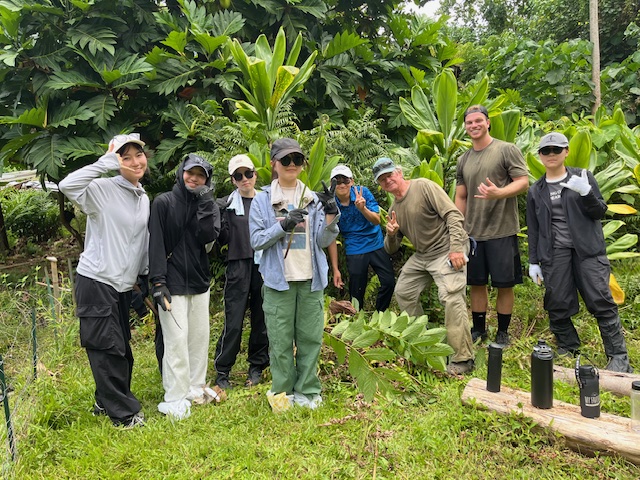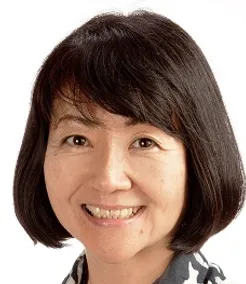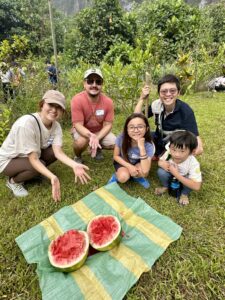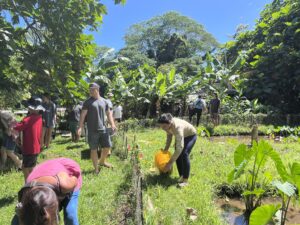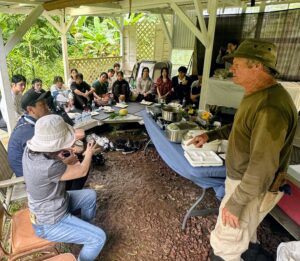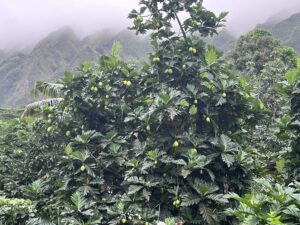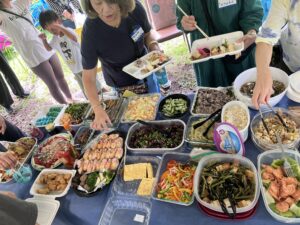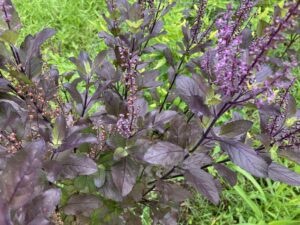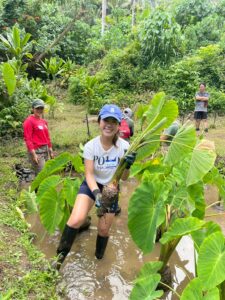From July to the end of August, fruit trees from shrubs to medium and tall trees, vegetables in the field, and weeds surrounding them all vigorously spread their leaves on our agroforestry farm. Various green colors, such as dark green, blue-green, and yellow-green, collaborate with the sunlight. This is the time of year when the vivid contrast of greenery and the fragrant scent of the plants and trees is most noticeable to the eye, and the mind and body feel renewed.
On August 14, when the “green energy” was at its peak, 18 junior and senior high school students selected for the international exchange project “Seishounen no Tsubasa” (Wings of Youth) of Edogawa-Ku (or Edogawa City), Tokyo, visited our farm.
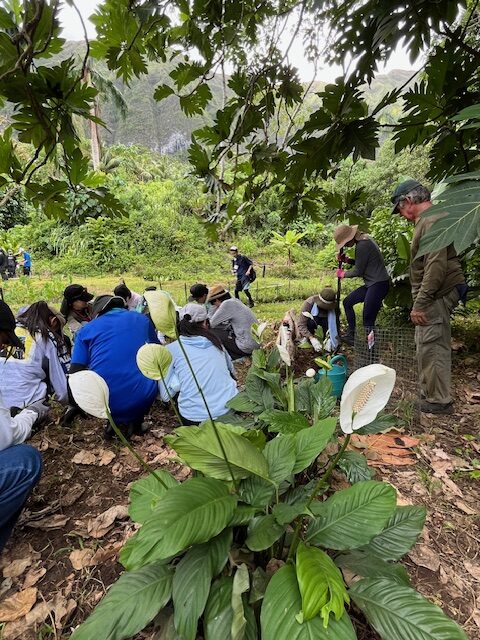
In fact, I (Takae) grew up in downtown Tokyo, having been born and raised in Edogawa City, where I attended elementary, middle, and high schools. The coordinator of Seishonen no Tsubasa (Wings of Youth) asked me if those students could experience natural farming, and I gladly accepted the request.
Edogawa City is now attracting attention as one of the wards in Tokyo that are making efforts to protect the environment. The rivers branching off from the Tone River and the seashore of Tokyo Bay are being cleaned up, and the number of green parks is increasing. However, children are so busy with their studies and club activities that they rarely can experience the great outdoors. They were a little nervous when they first set foot on our farm, and some were extremely frightened of insects and wild birds.
However, after just a few hours of “hands-on” farming, these city children had bright smiles on their faces, said, “We want to live with respect for nature,” and went back to Honolulu in high spirits.
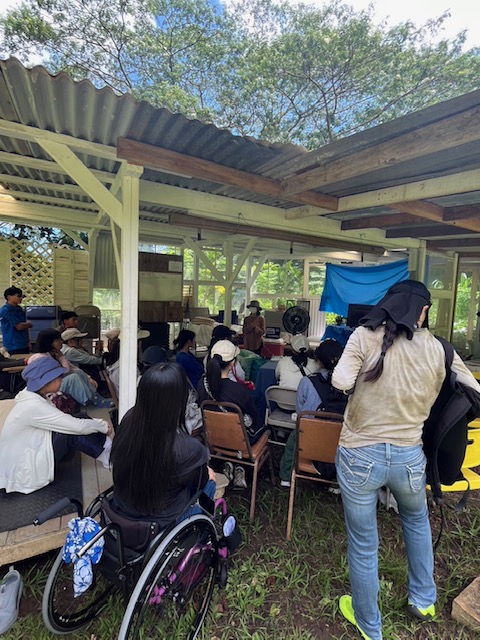
In the past, we have conducted half-day nature farming training programs for junior high and high school students at the request of local governments and organizations in other prefectures, including Fukuoka. We have also had volunteer visits from groups of students attending universities in Honolulu. Each time, I have briefly explained that what we are doing here is actually modeled on traditional natural agriculture common to both Japan and Hawaii – natural cycle agriculture with the ecosystem that connects the mountains to the sea.
Understanding the meaning of “natural farming,” the visiting children touch the warm, fluffy, organic soil with their hands while basking in the energy of Ko’olau Mountain and its greenery and sharing the fresh produce of the earth. We just provide that experience, but ah, this is also where the meaning of this farm lies; we got ourselves inspired deeply. Gary and I are discussing how we should continue to be more proactive in welcoming urban children and youth.
If you are interested in training in natural forest agriculture at Second Nature Farm, please contact us by e-mail: takaeoj@gmail.com or via the Contact Us page of this website.
(Reference 1: Edogawa-ku, Tokyo “Wings of Youth” Projectーhttps://www.city.edogawa.tokyo.jp/e027/kosodate/kenzenikusei/tsubasa/index.html)
(Reference 2: Honolulu Edogawa Citizens Associationーhttps://www.city.edogawa.tokyo.jp/e004/kuseijoho/mayor/photo/2023/07/0725-30.html)

